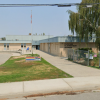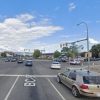On Aug. 17, a few days before the Rutland Medical Clinic shut its doors for good, Shirley Jones waited to talk to one of its doctors about her cough.
Jones, who’s been going to the clinic for “too long to remember,” uses it for most of her medical needs: she gets prescriptions refilled there and goes when she’s feeling sick or has medical questions.
Technically, she says, she has a family doctor, but she sometimes finds it difficult to get there in her old age.
For her, the Rutland Medical Clinic is a “lifesaver,” and Aug. 17 she was more than a little apprehensive about it closing.
“Honestly, I’m not sure what I’m going to do,” she said.
Renee, another patient, who asked her last name be kept private, said she uses the clinic whenever she can’t get to her family doctor.
She said she will probably get by when the clinic closes, but worries for people like her mother, who rely on it to renew prescriptions in a hurry.
Renee said her mom can’t just call her prescriptions in, and needs to physically go to a doctor to get them renewed.
Sometimes she will forget to do that, or just run out and needs them right away, “then we’re in a stressful situation and clinics are vital to that,” Renee said.

Shifting priorities
Until it closed Aug. 20, the Rutland Medical Clinic was one of only a handful walk-in clinics in Kelowna, and the only one in Rutland, a community of about 30,000 people.
According to Mike McLoughlin, the founding director of the Walk-in Clinics of B.C. Association, it closed in part because of changing priorities regarding how doctors are paid.
Traditionally, McLoughlin says, family doctors get paid by the provincial government for each patient they see. This “fee-for-service” model is the backbone of most doctors’ compensation.
But recently, McLoughlin says money set aside for primary care services has increasingly been put towards bolstering incentive programs that compensate doctors for certain types of care.
While the flat fee for seeing patients has stayed fairly constant, many doctors make up for that by claiming the incentive fees, bumping up their salaries by what McLoughlin estimates is anywhere from 30-40 per cent.
However, those incentive fees are only available to doctors who keep a patient panel (essentially a list of all their patients).
Most walk-in clinics don’t keep patient panels, which is why anyone can see a doctor at one. That means the doctors can’t claim the extra incentive fees.
For many, McLoughlin says working in a walk-in clinic essentially means taking a 30-40 per cent pay cut.
“The walk-in clinics are basically getting squeezed, and that means there’s quite a strong disincentive for doctors to work in them,” he says.

Diverse needs
Dr. Alan Ruddiman is the president of Doctors of BC, the organization that works with the provincial government to decide on doctor compensation.
He says the “fee-for-service model hasn’t been compromised in any way” by incentive programs, and that those programs “reflect the diverse needs of different communities” for different types of care.
“We fully recognize that walk-in clinics provide a very important service in this province,” he said, but added that he would like to see better access to family physicians for all patients in the province.
KelownaNow was unable to reach the director of the Rutland Medical Clinic, Dr. James Allison, but in May he told the Kelowna Capital News that a lack of new doctors, combined with new expected standards of care, were driving the closure.
He said he started the clinic in 1996 with 17 doctors doing part-time work, but that by the end that number had shrunk to eight.
“I’m very sad to see this happen,” he said. “I thought that this clinic would be there forever.
Dr. Curtis Bell. the executive medical director for community and residential services at Interior Health, wrote in an email that IH empathises with people affected by the closure, but can do little to change it.
“It’s important to understand that family physicians in walk in clinics, or in individual practices are not IH employees, but are private business owners. Ultimately, the decision on where to locate a clinic or a doctor’s office, and how to run a business, is a physician’s choice,” he wrote.

Looking elsewhere
Meanwhile, McLoughlin says he is now expecting a flood of patients at the remaining walk-in clinics in Kelowna, as people who frequented the Rutland clinic look elsewhere for care.
The reality of these changes, for someone like Catherine Rowen, a patient visiting the Rutland Medical Clinic a few days before it shut down, is even more stress when pressing medical concerns arise.
“It’s really hard to get into other clinics,” Rowen said. Once Rutland is shut down, “where do you go after that? You search all over for a clinic, or you can go sit in the emergency room for hours.”
She shook her head and frowned.
“Neither one sounds very good to me,” she said.
















